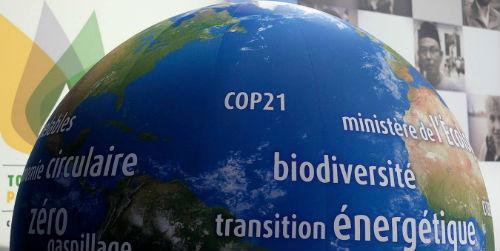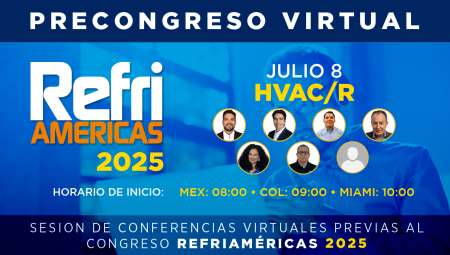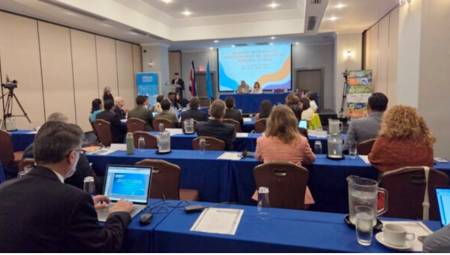The XXI International Conference on Climate Change was held in Paris, from November 30 to December 11, 2015[]. This conference was organized by the United Nations Framework Convention on Climate Change (UNFCCC).
XXI International Conference on Climate Change was held in Paris, from November 30 to December 11, 2015[]. This conference was organized by the United Nations Framework Convention on Climate Change (UNFCCC).
by Camilo Botero*
The aim of this event was to sign a global agreement to reduce greenhouse gas emissions across planet earth. At this conference (COP21) on climate; 195 countries adopted the first legally endorsed global climate agreement.
This agreement constitutes a global action plan to put the world on the path to abolish harmful climate change, limiting global warming considerably below 2°C and should have legal effect by 2020. The Paris agreement is the connection between today's policies and climate neutrality, before the end of this century.
Key elements of the agreement
I - Mitigation by reducing emissions: Governments agreed:
1. A long-term goal to keep global temperature rise averages well below 2°C.
2. Try to limit the increase to 1.5 °C, as this would reduce the impact on climate change and mitigate its risks.
3. The need for global emissions to peak as soon as possible, recognizing that this will take longer, for developing countries.
4. Seek rapid emission reductions, according to the best available science.
The actions being taken by countries as a whole are not enough to achieve this goal of keeping the average temperature rise well below 2°C, so great scientific, technological and financial efforts must be made to achieve this; it is a matter of survival.
II - Transparency and Measurement: Governments agreed on the following:
1. Meet every five years to set more ambitious goals, according to the advancement of science.
2. Report to each other and inform the public about how well they are doing in achieving their goals.
3. Assess progress towards long-term goals through an appropriate system of transparency and measurement.
III – Adaptation: Governments agreed to:
1. Strengthen society's ability to deal with the impacts of climate change.
2. Provide continuous and improved international support for the adaptation of developing countries.
IV – Loss and damage: The agreement also:
1. Recognises the importance of preventing, minimising and directing loss and damage associated with the adverse effects of climate change.
2. Admits the need to cooperate and improve understanding, action and support, in different areas such as early prevention systems, emergency prevention and risk insurance.
V – Support.
1. The European Union and other developed countries will continue to support climate-related actions to reduce emissions and build resilience to climate change impacts in developing countries.
2. Other countries are motivated to provide or continue to provide such support on a voluntary basis.
3. Developed countries will continue their existing collective goal, to mobilize $100 billion per year until 2025, when a new collective goal will be set (hopefully this will indeed be done and those funds will be used correctly).
Note: The above was taken from the European Commission's website: Climate Action, with a free translation from me.
Interpretation of agreements
It seems to me that, with the exception of the maximum increase of 2 °C in the average temperature of the earth and the recommendation that it would hopefully be of the order of 1.5 °C and the data of the mobilization of US $ 100,000 million per year until 2015 by developed countries for the fight against climate change, the other points are ambiguous.
Based on this reality of harmful climate change, Pope Francis published his encyclical Laudato Si', in which he tells us "What kind of world do we want to leave to those who succeed us, to the children who are growing up?" And it continues; "but now this battered and plundered land cries out and its groans join those of all the abandoned of the world and invited us to an 'ecological conversion', assuming the urgency of the challenge presented to us before the 'care of the common home'". This was a direct message to all the nations of the world, who at least signed this agreement in Paris.
He goes on to say: "Humanity still has the capacity to collaborate to build our common home", especially by entering into dialogue with everyone. The proposal of the Encyclical is that of an "integral ecology, which clearly incorporates the human and social dimensions". Let us reflect a little in the light of the thematic axes of his encyclical, whether the Paris agreement is in line with his proposals.
Climate change: "This is a global problem with serious environmental, social, economic, distributive and political dimensions, and poses one of the main current challenges for humanity." If "the climate is a common good, of all and for all", the most serious impact of its alteration lies with the poorest, but many of those who "have more resources and economic or political power seem to concentrate above all on masking the problems or hiding the symptoms": "The lack of reactions to these dramas of our brothers and sisters is a sign of the loss of that sense of responsibility for our similar on which every civil society is founded." It seems to me that the agreement signed does not have the forcefulness that the Pope demands.
The question of water: The Pope states unequivocally that "access to safe drinking water is a basic, fundamental and universal human right, because it determines the survival of people, and therefore is a condition for the exercise of other human rights." Depriving the poor of access to water means "denying them the right to life rooted in their inalienable dignity." The previous summary of the agreement does not mention the issue of water, which is an issue of vital importance in these aspects of climate change.
The loss of biodiversity: "Every year thousands of plant and animal species disappear that we will no longer be able to know, that our children will no longer be able to see; they will be lost forever." They are not only potential exploitable "resources", but they have a value in themselves. In this perspective "the efforts of scientists and technicians who try to provide solutions to the problems created by the human being are laudable and sometimes admirable", but this human intervention, when put at the service of finance and consumerism, "makes the land in which we live less rich and beautiful, and increasingly limited and gray." This topic is not even mentioned.
Ecological debt: within the framework of an ethic of international relations, the Encyclical indicates that there is "a real ecological debt", especially of the North in relation to the South of the world. In the face of climate change, there are "diversified responsibilities", and those of developed countries are greater. Knowing the profound divergences that exist regarding these problems, Pope Francis is deeply impressed by the "weakness of the reactions" to the dramas of so many people and populations. This aspect is included; hopefully it will become a reality.
The human root of the ecological crisis
A first foundation of this thematic axis is the reflections on technology: it is gratefully recognized for its contribution to the improvement of living conditions, although it also gives "those who have the knowledge, and above all the economic power to use it, an impressive dominion over the whole of humanity and the whole world", "the market alone does not guarantee integral human development and social inclusion." "Stop investing in people to obtain a greater immediate return is very bad business for society" It is therefore necessary to ensure "a scientific and social discussion that is responsible and broad, able to consider all the available information and call things by their name", from "free and interdisciplinary lines of research".
As long as we do not recognize that the current climate change is a consequence of our misuse of energy and natural resources, it is difficult for us to begin to change, I believe that this fundamental point is not reflected in the previous summary on agreements.
An integral ecology
The core of the Encyclical's proposal is an integral ecology as a new paradigm of justice, an ecology that "incorporates the peculiar place of the human being in this world and its relations with the reality that surrounds it" "Any impairment of solidarity and civility produces environmental damage", "the analysis of environmental problems is inseparable from the analysis of human contexts, family, work, urban, and the relationship of each person with himself". This environmental ecology "is inseparable from the notion of the common good." I believe that this important concept is also not reflected in the previous summary.
Pope Francis is not afraid to make a harsh judgment on recent international dynamics and refers to the Summits on Climate Change: "The World Summits on the environment of recent years did not respond to expectations because, for lack of political decision, they did not reach really significant and effective global environmental agreements", "we need an agreement on global governance regimes for the whole range of so-called 'global commons'", since environmental protection cannot be ensured solely on the basis of the financial calculation of costs and benefits.
"The environment is one of those goods that market mechanisms are not able to defend or promote adequately" while corruption, which hides the true environmental impact of a project in exchange for favors, often leads to spurious agreements that avoid informing and debating widely. I will be very attentive to the comments made by Pope Francis regarding the agreements signed at the Climate Change Summit in Paris.
His call to those who hold political assignments is particularly incisive, to avoid "the efficient and immediatist logic" that predominates today. And he adds "but if he dares to do so, he will again recognize the dignity that God has given him as a human and will leave behind his passage through this history, a testimony of generous responsibility."
Ecological education and spirituality
The root of the cultural crisis is deep and it is not easy to redesign habits and behaviors. Education and training remain basic challenges: "Every change needs motivations and an educational path". Educational environments must be involved, first of all "school, family, media, catechesis".
The starting point is to "bet on another lifestyle". "An integral ecology is also made of simple everyday gestures where we break the logic of violence, of exploitation, of selfishness." "Sobriety, which is lived with freedom and conscience, is liberating." So much for quotes from Pope Francis.
Conclusion
It is daring to conclude on these complex and delicate issues but I am sure that if we want to contribute to the attenuation of global warming, we must strive for greater energy efficiency and minimize increases in entropy, in all energy conversion processes and also commit ourselves to absolute care, of all natural resources.
* Camilo Botero is the current Secretary of the Federation of Ibero-American Associations of Air Conditioning and Refrigeration - FAIAR; he was president of ACAIRE and is president of Camilo Botero Ingenieros Consultores Ltda. He has worked as a teacher in several Colombian universities, guilds and currently in ACAIRE in diploma courses of air conditioning projects, energy efficiency in air conditioning and refrigeration, cogeneration and trigeneration, applied psychometrics, thermodynamics, fluid mechanics, heat transfer and turbomachinery. ([email protected]).














